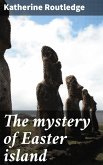In "The Plague at Marseilles Consider'd," Richard Bradley meticulously examines the devastating epidemic that struck Marseille in the 18th century, weaving together historical accounts, medical observations, and societal reactions to the crisis. Bradley's narrative style is both analytical and imaginative, employing a rich, descriptive language that evokes the dread and turmoil experienced by the city's inhabitants. Contextually, this work emerges during the Enlightenment, a period steeped in the pursuit of knowledge and reason, yet still grappling with the omnipresent specter of disease, making Bradley's exploration of plague both timely and resonant with the contemporary debates on health and morality. Richard Bradley, a noted botanist and natural philosopher, was deeply influenced by the intersection of science and the human condition. His background in the empirical study of nature and keen observations of social dynamics informed his nuanced view of how epidemics not only ravage populations but also challenge the resilience and ethics of society. This cultivated perspective allowed him to craft a narrative that is as much a reflection on human behavior as it is a study of a public health crisis. For readers interested in public health, history, or the complexities of human response to calamity, "The Plague at Marseilles Consider'd" is an essential text that not only offers a vivid recounting of a specific event but also provides timeless insights into the human experience when faced with catastrophe. Bradley'Äôs work remains a significant contribution to both historical literature and contemporary discussions on health crises.
Dieser Download kann aus rechtlichen Gründen nur mit Rechnungsadresse in A, B, BG, CY, CZ, D, DK, EW, E, FIN, F, GR, H, IRL, I, LT, L, LR, M, NL, PL, P, R, S, SLO, SK ausgeliefert werden.









